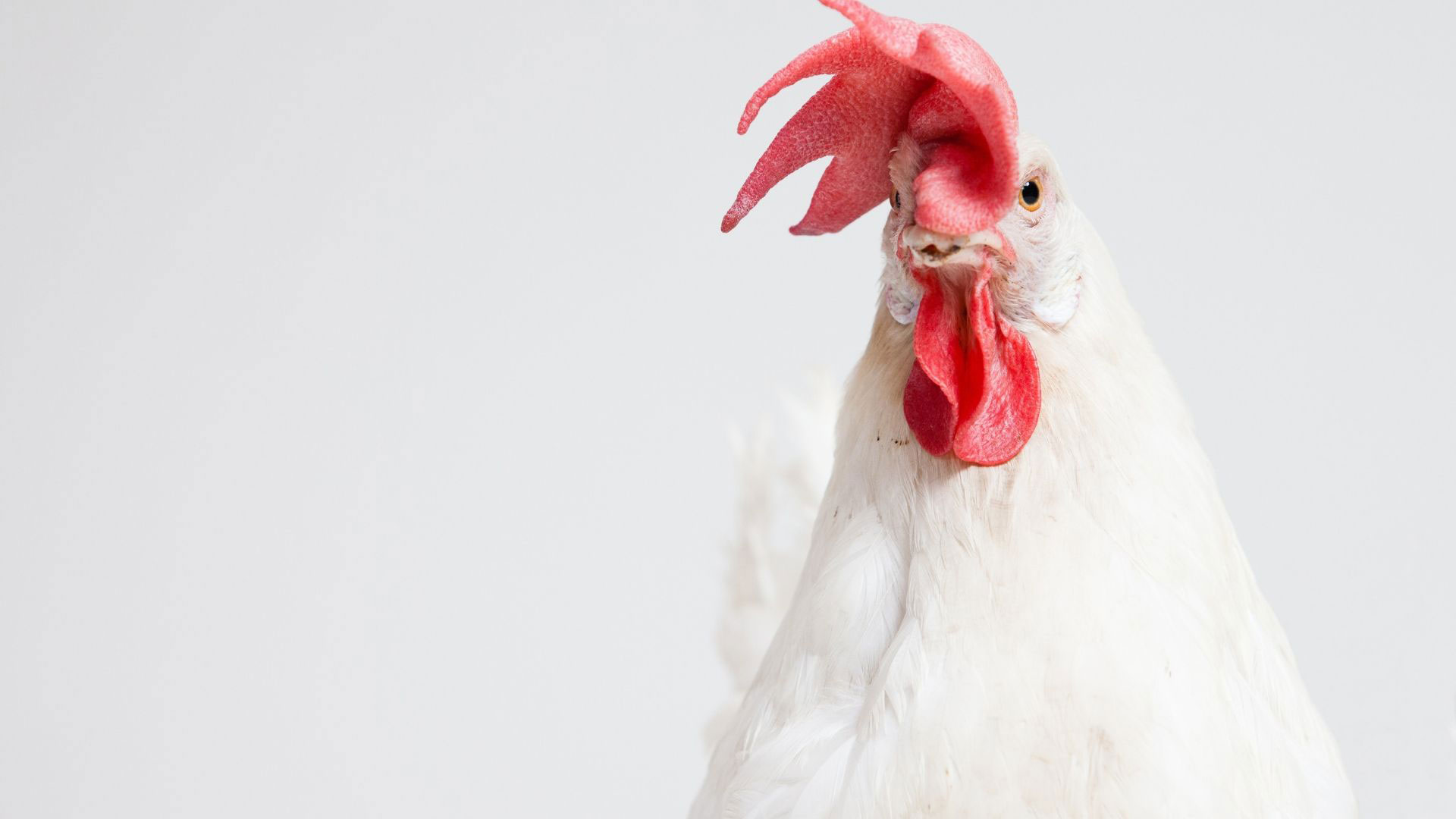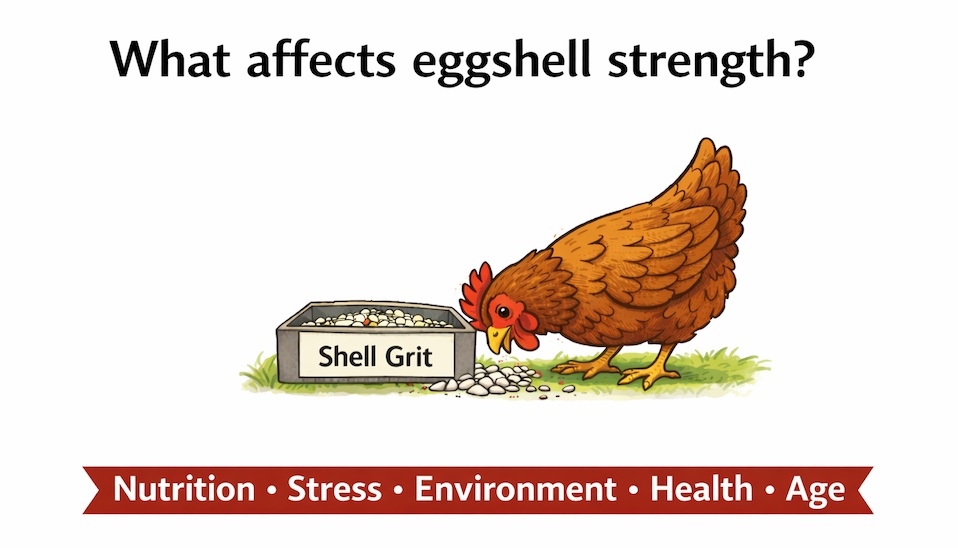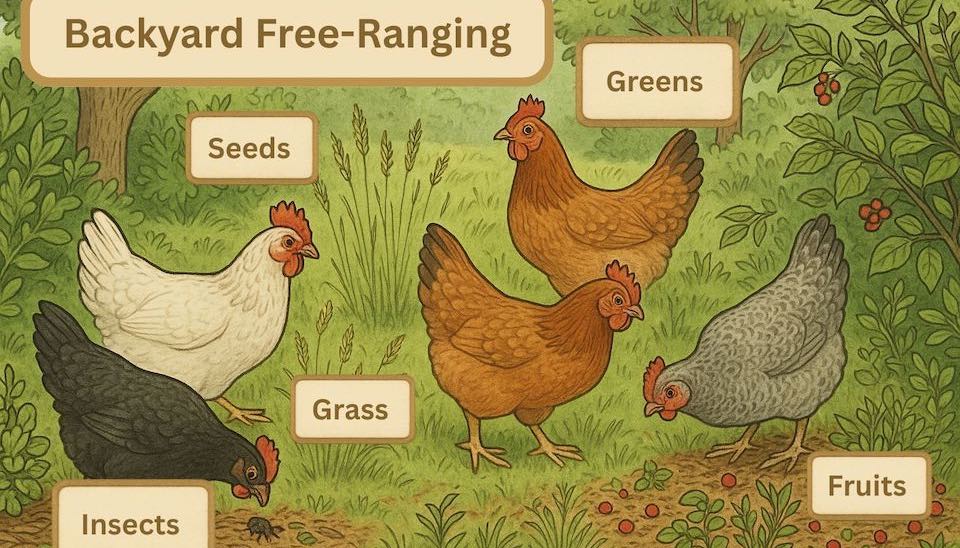How Much Protein Do Chickens Need?
How Much Protein Do Chickens Need?
You’re chooks aren’t bulking, but you should still be supplementing their protein intake.
Whether they’re laying eggs, growing feathers, or just pecking around the yard, protein is the building block of everything they do. But most backyard keepers don’t realise their hens might be falling short even on a so-called “complete feed.” If your birds are free-ranging or getting scraps, they’re likely not meeting the protein levels they need for healthy eggs and glossy feathers.
The fix is easy: give your hens high-protein snacks like dried mealworms or black soldier fly larvae a few times a week to make up the gap. You’ll not only see better egg production and quality but also healthier, happier birds
Why is extra protein for chickens essential? Consider this:
5 facts about protein for chooks
- Feathers comprise 7 % of the live weight of a chicken
- Feathers are 75 % protein
- The average egg contains 6 grams of protein
- Laying hens can produce up to 300 eggs a year. Their distant ancestors used to produce about 14!
- For most animals, ruminants excluded, the proteins found in animal sources like meat and insects are easier to absorb than plant proteins
So if your chickens are producing eggs and feathers, which I’m sure they are, then they need an awful lot of protein to supply their metabolic needs as well as your breakfast!
So how much protein do chickens need?
Science is an interesting thing. If you do a literature review of studies about the protein requirements of laying hens, you get a range of conflicting results.
Anywhere between 12 % and 20 % protein in the diet has been recommended, plus extra protein for moulting chickens. Some studies looking at the effect of protein on productivity have fed birds up to 33 % protein.
But when you think about it, the variation makes sense because external factors like breed, rate of egg production, stage of growth, moulting and even climate can influence how much protein a chicken needs.
However, studies have been conclusive about one thing:
a diet containing insufficient protein reduces egg production and egg weight. Not to mention that it can compromise the health of the bird!
So how much protein should your chooks be getting?
For laying hens in Australia, the most common recommendation is 16–18% protein in their diet.
However, protein needs vary depending on the stage of life and activity level of your chooks:
- Chicks (0–8 weeks): 18–20% protein for rapid growth and strong development.
- Growers (8–20 weeks): 16–18% protein as they transition to maturity.
- Laying hens: 16–18% protein for consistent egg production and overall health.
- Moulting or stressed birds: 19–20% protein to support feather regrowth and recovery.
A little extra protein during demanding periods can make a noticeable difference in their wellbeing and productivity.
Why a complete feed doesn’t cut it
Most complete chicken layer feeds contain about 15% protein.
Protein is generally one of the most expensive ingredients of a feed, so feed manufacturers will include as little as possible while still providing for all the needs of a laying hen. A 15 % protein complete feed (or a premium feed with 16-18 % protein) is what your hens should be eating because it contains everything they need. By comparison, scratch mix and other grain blends are usually only 12-14 % protein.
But there’s a catch. The protein percentage in a complete feed is deceptive because that isn’t everything your chooks are eating.
So what else are they eating? If they are free-range, while they are scratching up the chicken run (or your garden!) your chickens are gobbling up tasty insects and healthy greens. And let's admit it - we all give our birds table scraps, weeds and garden waste from time to time.
On the one hand, supplementing your chickens’ diet by free-ranging or with scraps provides your birds with an interesting treat and a broad range of extra vitamins and minerals. There’s nothing wrong with it in moderation and it also means you are recycling waste into healthy eggs.
So what’s the problem?
The problem is, if your chooks are free-ranging or eating scraps, they aren’t eating just their feed. And that means that unless they are mainly eating worms and insects, they are watering down the protein content in their diet not bulking it up. So they aren’t getting a full 15 % protein at all.
And on top of that, the 15-18 % they are getting is often from vegetable sources anyway, and therefore not only is it less easily absorbed, it also lacks essential amino acids that are only available from animal proteins.
The conclusion? Extra protein for chickens is necessary in most situations. Even if they are consuming a high-protein food, chickens that free range or also consume scraps usually need more protein for optimum health and laying.
The solution? Providing a protein supplement with every couple of days is the perfect way to ensure your birds are getting everything they need to be thrive and to provide you with a healthy, protein-rich breakfast.
Top 10 high-protein treats for chickens
Here are some of our favourite treats to help you boost the protein in your chickens' diet:
1. Dried Mealworms
At 53 % protein, Dried Mealworms are by far our chooks' favourite protein-rich treat. A handful every day or so provides the perfect complement to a complete feed.
2. Dried Soldier Fly Larvae
Dried Black Soldier Fly Larvae are another natural, insect-based protein source that chickens just love! Raised on food waste, they are an environmentally-friendly choice too!
3. Insects
Chickens love insects. And they normally get their own, if they are allowed to free range. But a bucket of grasshoppers, caterpillars, beetles or grubs is always appreciated. It's a win-win: you save your plants from harm and your chooks get a high-protein snack!
4. Seeds
If you've ever given your chooks sunflower seeds, you'll know they love them. Other favourites are pumpkin seeds and flaxseed. Seeds are naturally high in protein, but they also have a high fat content so they aren't always the best protein supplement.
5. Non-medicated chick starter
Never feed adult birds medicated chick starter. But non-medicated starter has extra protein to help chicks grow and can be a great boost for laying hens as a treat. Don't use chick starter as your layers' main feed, as it doesn't contain the right balance of vitamins, minerals and nutrients for adult birds.
6. Sprouts
Bean sprouts are high in protein and easy to raise on the kitchen bench. Why not try sprouting some mung beans, lentils or soybeans? Always ensure you are using untreated seed and only feed your birds proper sprouts - unsprouted dried beans can be poisonous!
7. Worms
Free range chickens usually find their own worms. But it is easy to raise worms in a worm farm, recycling kitchen scraps into protein for the chooks and fertiliser for the garden!
8. Eggs
Chickens actually love eggs, and they are a great source of protein and calcium (if you leave the shells on). Just make sure the eggs are unrecognisable as you don't want to encourage egg-eating in the nesting boxes.
9. Parsley
It sounds counter-intuitive, but parsley is actually 21 % protein. And it is a powerhouse of vitamins and minerals!
10. Peas
Our chickens love the ice cold treat of frozen peas on a summer day. They are the next best thing to cold watermelon and far healthier for chooks, not to mention rich in protein!
Other protein options
Some chicken keepers also feed their chickens fish, seafood and meat. The wild ancestors of chickens were omnivores, and I have seen my free-ranger layers kill and eat small animals such as lizards, rodents and even snakes.
Meat, fish and seafood are all great sources of protein for chickens, but not all chicken keepers are comfortable with them.
If you do want to feed your birds meat or fish, always ensure it is fresh and remove any uneaten scraps after an hour or so. Cooking the meat, fish or seafood first decreases the risk of disease or parasites.
Everything in moderation
Like everything, protein-rich treats and supplements should only be fed in moderation. Insufficient protein decreases egg production and impacts health, but too much protein is dangerous too.
Your chickens' main source of nutrition, and protein, should always be their complete feed!
Limit treats to every few days and feed in moderation. Give your birds more protein-rich snacks if they are eating less feed and more scraps or forage. Also be careful to limit protein sources that are also high in fat.
Do you want to know more about chicken nutrition? Other related topics:
Happy chicken keeping!



